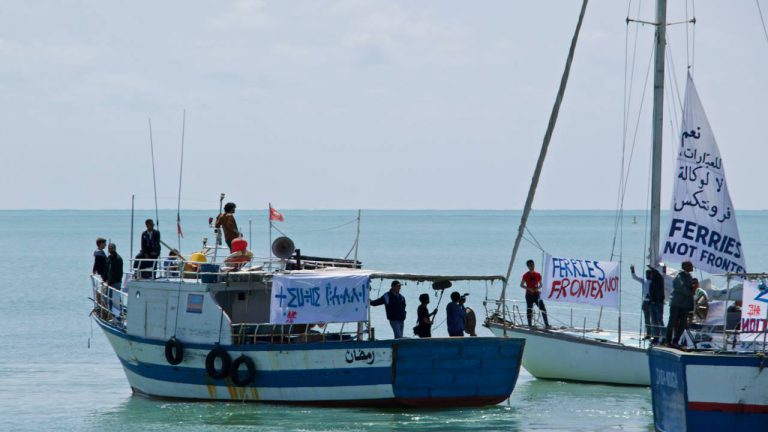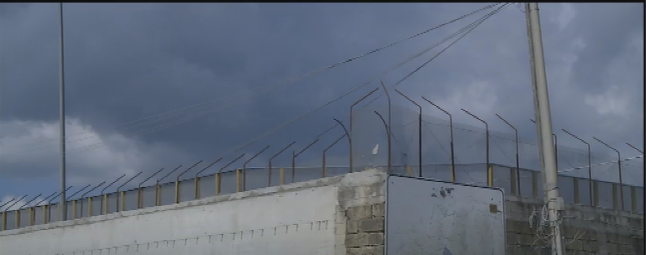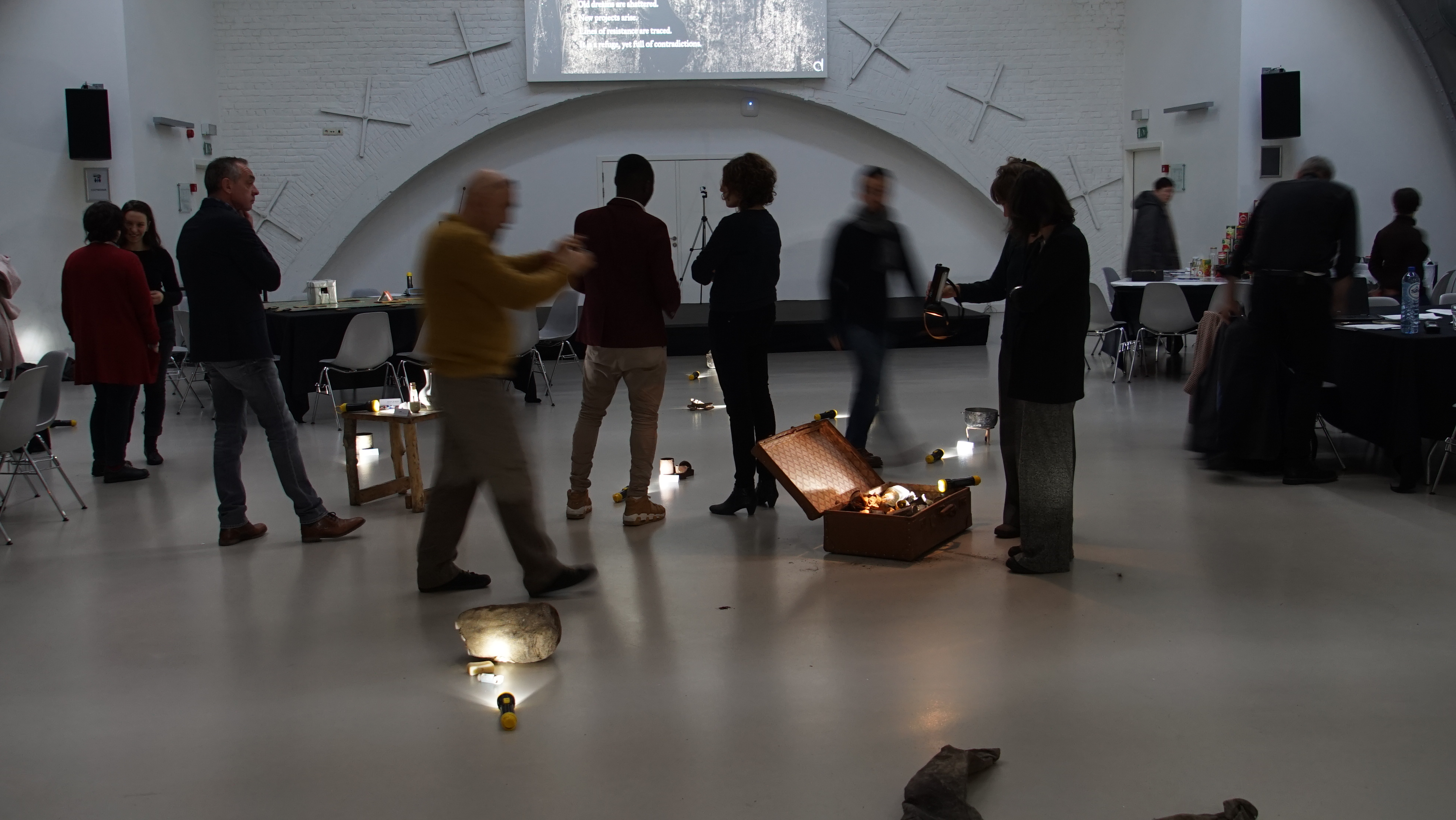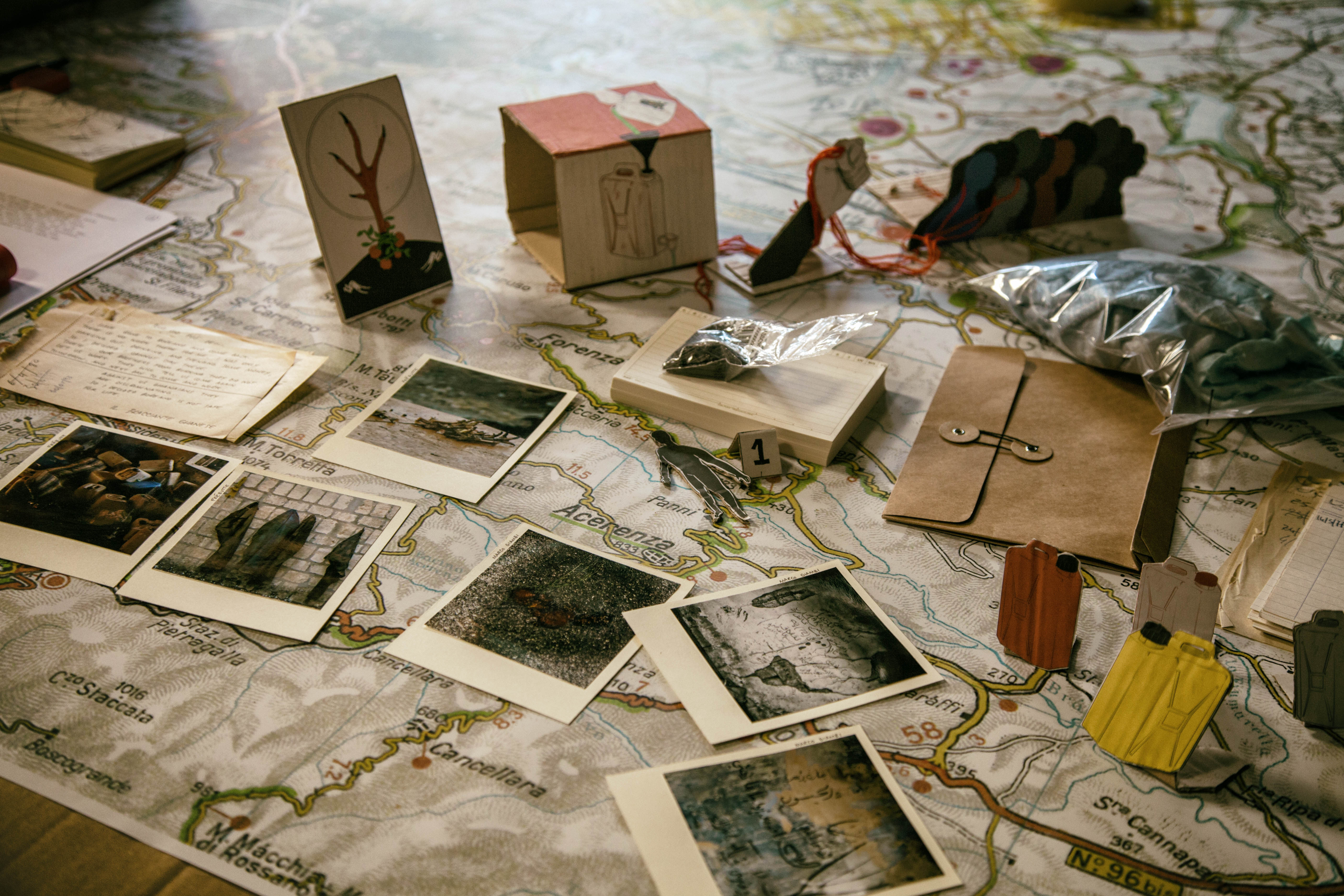The University of Palermo and New York University have just finalised the programme of their conference titled ‘Black Mediterranean: ReSignifications‘ – a topic that is raising widening international interest lately (see amongst others these new publications by Ida Danewid -awarded with the Third World Quarterly Edward Said prize- and Gabriele Proglio, amongst others, as well various posts on the Black Mediterranean on these pages). The international workshop, which will take place between Palermo and Naples on 6-9 June 2018, follows a series of international conversations that are breaking new ground in the fields of African and African Diasporic art, literature, cultural theory, history, and political practice. I will present a paper there titled ‘Permeating Territories: The Mediterranean Threshold and Black African Transformations’ -based on my longitudinal engagement with the African diaspora in Italy. I’m very much looking forward to this experience! Collateral events of the MANIFESTA European Biennial of Contemporary Art, the conference will be accompanied by an exhibition of the works of an array of international artists and the African art collection of Nigerian Nobel Prize for Literature Wole Soyinka, who will open the conference.
Author Archives: admin
Self-harm
Still more news about the human rights violations internal to the Italian migrant detention system continues to reach the public. In a joint press release, the coalition of LasciateCIEntrare, Legal Team and Osservatorio Migranti Basilicata (OMB) denounce the CPR (Centro di Permanenza per il Rimpatrio) of Palazzo san Gervasio as a site of repression and abuse. On the phone with a local news site, the spokesperson of LasciateCIEntrare, Yasmine Yaya mentions the presence of some particularly vulnerable migrants who are trying to seek asylum and need urgent assistance. At the same time, the organisation denounces the high degrees of psychological stress that leads some inhabitants to purposively inflict self-harm and attempt suicide. In the afternoon of 26 April, a Syrian Kurdish citizen threatened to kill himself; while two other people, perhaps of Tunisian nationality, threatened to hang themselves in another migrant reception center. Final proof of the migrant rights violations arrived a few days later, with the unconditional release of all 42 inmates of the CPR in Palazzo. Interviewed by the same press agency, the lawyer of the OMB Angela Bitonti, confirms that she and her assistants managed to liberate these citizens because the detention measures were “illegitimate”, as they were based on an alleged social danger that did not persist (remember the migrants had been detained on presumption of having set fire to the reception center in Lampedusa). “From now on, they are asylum seekers, for whom the application of the rule of international protection applies… Many of these people should be helped,” Bitonti concludes, remembering that “we are dealing with human lives, with human beings, to whom life can not be denied.”
Alarm Phone
The Alarm Phone project publishes its report entitled “Mediterranean Coalitions of Struggle”. It offers an overview of the situation in the three main Mediterranean regions and the developments there: of deterrence, forcible returns, and criminalisation of migrant flows. In addition, the report gives an overview of the political campaigns and struggles members of the Alarm Phone have been involved in over the past six weeks, ranging from 24/7 phone activism, symbolic actions in the Netherlands, protests with fishermen in Tunisia, rescue operations in the Central Mediterranean, counter-investigations that speak back to European attempts to criminalise non-governmental rescue, to collective commemorations in Greece.
The report can be found on the Alarm Phone website and on Facebook
Migrant abuse (cont’d)
A consortium of associations led by the Coalition for Freedom and Civil Rights (CLID), the Association for Juridical Studies on Immigration (ASGI), and Indiewatch confirms earlier findings about the systematic abuse against migrants, including children, at two locations in Sicily and Potenza that were mentioned in a previous post: Lampedusa and Palazzo San Gervasio. The report (English summary here) says migrants and asylum seekers at the two sites have been victims of human rights violations and the right to defence, as well as inhumane living conditions and violence. Specifically referring to Palazzo, ASGI notes what it calls “very serious violations of the right to defence, which impeded the migrants from being assisted by their attorneys during the confirmation hearings.” In the meantime, an attempted escape by 22 detainees from the detention center yesterday has resulted in a mass search operation by the police, resulting in the arrest fr 12 of them. Human rights organisations are worried about the increasing repression of those who remain internalised. A complete report (in Italian) about the joint visit by Campagna LasciateCIEntrare and Osservatorio Migranti Basilicata, together with Europarlamentarian Eleonora Forenza has been made available here.
Migrant abuse
A violent clash between inmates and police left several injured in the migration detention of Palazzo San Gervasio, Italy. Palazzo, a small town of 5000 inhabitants in the region of Basilicata, has recently come to host a group of Tunisian asylum seekers from Lampedusa, which has been officially closed down for renovation (another group was dispatched to Turin). Officially, the Tunisians are being charged now for setting on fire parts of the Lampedusa camp in protest against their inhumane treatment -a charge that has been firmly denied and contested by a court in Turin.
After their arrival in Basilicata mid-March, some Tunisian asylum claimants had started a hunger strike, in a desperate attempt to claim their right to asylum and to see their lawyers. on 27 March, a sit-in in front of the gates by a dozen of activists from the CSOA Anzacresa collective incited the inmates to protest against their infinite detention, which caused the police offensive (according to this report by Cronache di Ordinario Razzismo). Video fragments (which are very difficult to obtain because of the deliberate destruction of personal belongings by the camp guards) shared by the family members of the detainees show several injured inmates carried away by the police.
After a long closure, the migrant detention centre (officially Centri di Permanenza per i Rimpatri: CPR) of Palazzo was officially reopened in January to take on inmates from the overpopulated hotspot of Lampedusa, which had been criticized for some time for its inhumane conditions (for Italian reports see here and here). The structure has a long history of migrant accommodation. Originally confiscated from organized crime in 1999 (from a man called Antonio Sciarra), it initially served as a temporary accommodation for seasonal foreign labourers who return to the region each year to harvest tomatoes (an issue we talked about repeatedly on this blog). In 2011 regional authorities abruptly closed the infrastructure, officially to prevent migrants to settle illegally within the camp structure. While this decision deliberately dispersed foreign labourers to the surrounding countryside to set up their makeshift migrant ‘ghettos’, the regional administration quickly transformed the former labour camp into an open prison (officially CIE: Centro per Identificazione e Espulsione) for about 60 migrant detainees dispatched from various landing sites in Sicily. In April 2011, journalist Raffaella Cosentino documented the extreme cruelty with which migrant prisoners were detained there at the time (amongst others in this video), causing a subsequent protest and official visit by three Italian parliamentarians (Touadì, Calipari and Giulietti), who confirmed this situation as unacceptable.
After a long closure, the management of the infrastructure has been assigned now to a private company, called Engel Italia srl. Engel is not new to migration detention in Italy. In 2014 two civil society organizations, the labour union CGIL and LasciateCIEntrare, officially denounced the company for serious irregularities in the management of a refugee reception centre in Paestum, where migrants claimed they were threatened at gunpoint after claiming their basic human right to medical and assistance and to legal support. Local associations from Basilicata, presided by the Osservatorio Migranti Basilicata, and flanked by LasciateCIEntrare and the legal assistance collective ASGI, already last December attempted to sensitize the public opinion to the imminent reopening of the centre with a joint appeal. Lawyers, who have been denied access to the centre now for “security reasons”, are trying to find other ways to reach the 40 people held in this open-air prison. The only news that crosses its walls now arrives through local associations and through the relatives of the detainees.
Congo: Power to the Margins paperback
I am glad to announce the appearance of the paperback version of my book Violent Capitalism and Hybrid Identity in the Eastern Congo with Cambridge University Press. The book comes at a time of great turmoil in Congo’s north-east, where the end of armed conflict is not at all in sight, as recent reports from Ituri and le Grand Nord reveal. Reading through the detailed colonial and postcolonial history of this region makes one aware of the underlying dynamics of this armed conflict, which finds its origins in a series of intricate relations between regional politics, cross-border economies and capital accumulation. As Janosch Kullenberg writes in a recent review: the book moves beyond the “stereotypical and simplistic understandings about state failure and chronic violence in central Africa [which] have not led to great insights about either the mechanisms at work, or the emerging orders.” Instead the recent reports about continued violence in Eastern Congo make it worthwhile to approach this “constant crisis” through the long-term consequences of every day decision-making through a “ethnography of critical life worlds”.
Workshop Impressions
In the meantime, the first impressions of our Brussels workshop have been posted online by our funders… Thank you all for a very rewarding experience.
Modern Slavery
I recommend this interesting workshop in June 2018, London, entitled ‘Modern Slavery, Environmental Destruction and Climate Change’. In this scoping workshop the aim of the organisers is to bring together academic researchers who are working at the interface of modern slavery, environmental destruction, and climate change. This is a new and rapidly evolving field of study that seeks to better understand the relationship between human and environmental (in)security.
More information on this website: https://www.projectbloodbricks.org/events/
New Plantation
With less than one month to go, I gladly announce here the closing event of the New Plantations project, in Brussels on 14 December. For the last two years our international research team from Switzerland, Belgium and Italy has analyzed migrant work conditions in Europe, focusing on dynamics of illegalization, racialization and labour exploitation in the contintent’s agricultural sector.
Directed by a group of activists, artists and academics, the event will highlight the forces at play in the European horticultural industry. Rather than a classic presentation-based conference, the workshop will be pinpointed around several interactive tables, each of which will address a specific theme. The event will be closed by a short theatre show by Cantieri Meticci, whose members have been active participants in this project.
Anyone who is interested in participating, please send a confirmation email to project director Timothy Raeymaekers (timothy.raeymaekers@geo.uzh.ch) by November 30th. More information on time, place and logistics of the event can be found on our facebook page and on the attached flyer. The language of the event will be French.
https://snis.ch/project/new-plantations-migrant-mobility-illegality-racialisation/
Jululu
MigrArti Film festival 2017 has decided to grant the ‘best director’ award to JULULU during the 74th Venice Film Festival. Jululu is described as a “musical journey in a corner of Africa situated in Southern Italy”, which brings us to the problems of farm labourers in the region of Puglia.
The shortfilm, which was born from an idea of Sestilia Pelicano and Yvan Sagnet, was produced by Lazy Film. The photography is by Stefano Usberghi and directed by Michele Cinque. The storyboard comes from the dual perspective of Yvan Sagnet and Badara Seck.
Badara Seck is a Senegalese musician and griot, who navigates the Italian farmlands in search of Jululu, the African collective soul. To end up in one of the ghettos where immigrant agricultural workers live during the harvest season.
Yvan Sagnet is an important exponent of migrant labourers’ revolts in Italy. His movie gets awarded two months after the SABR trial, issued by the Court of Lecce on 12 July, which -thanks to the key witness of Sagnet – condemned in the first instance gangmasters and agricultural entrepreneurs, which had been denounced during the 2011 revolt at Bonardi’s farm in Nardo.
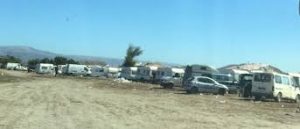 At the same time, migrant labour conditions have for from improved, and ghettos continue to spring up in the fields of Puglia, Basilicata and Calabria -despite the frequent destruction that has been repeatedly reported on these pages. Notably in Rignano, where regional authorities have eradicated the informal settlement, which hosted over 2000 labourers during the Summer months, a new ghetto has arisen, this time in the form of a ‘camping’. Commenting the release of a recent report by the syndicate FLAI-CGIL, president Giovanni Mininini says that “substantially nothing has changed” in the way labourers get recruited and subjected to exploitation in this hidden corner of Southern Italy.
At the same time, migrant labour conditions have for from improved, and ghettos continue to spring up in the fields of Puglia, Basilicata and Calabria -despite the frequent destruction that has been repeatedly reported on these pages. Notably in Rignano, where regional authorities have eradicated the informal settlement, which hosted over 2000 labourers during the Summer months, a new ghetto has arisen, this time in the form of a ‘camping’. Commenting the release of a recent report by the syndicate FLAI-CGIL, president Giovanni Mininini says that “substantially nothing has changed” in the way labourers get recruited and subjected to exploitation in this hidden corner of Southern Italy.




